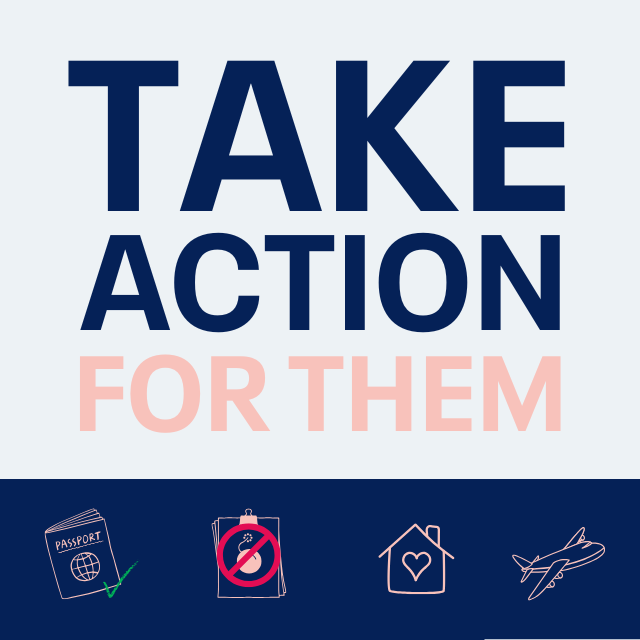Since the beginning of the genocide in Gaza, there has been no end to evidence on social media from Israeli occupation forces (IOF) soldiers openly boasting of their crimes, and feeling emboldened by the world’s silence.
Intent to commit genocide is usually difficult to prove, but not in the case of “the most documented genocide in history”. Palestinian human rights organisations such as Al- Haq even have a registry of hundreds of Israeli genocidal statements on Gaza – many of them made before 7 October 2023.
IOF celebrating war crimes on social media
Equipped by the world’s silence over the genocide in Gaza, the IOF have been openly celebrating their war crimes on social media:

Sali Israel Hazut is one of these soldiers. He lives in Tel Aviv, and describes himself on Facebook as self-employed in “earthworks, excavation and demolition”. Hazut is also an IOF soldier, who has been bragging on TikTok and Facebook about his many war crimes in Gaza. Plenty of photos, videos, and reels serve as evidence of his participation in the genocide.
According to his posts, by 9 October 2023, Hazut was in Gaza City. Accompanying a horrendous video of dying and injured Palestinians in the aftermath of a bomb blast, he wrote:
Whoever enters the mud should take into account that he will get dirty. Let the IDF mow.
Multiple videos show Hazut in close proximity to dead bodies. Videos dated 7 October 2024 show him in his JCB truck, while soldiers take a closer look at bodies left on a dirt track. Although it is unclear how the occupation murdered these people, Hazut can be heard laughing and joking with other criminals at the scene:
In the second video, a star of David can be seen, drawn onto the plastic which is wrapped around one of the bodies:
The bodies are then loaded into the bucket of Hazut’s bulldozer and are then dumped on the ground, while a gathering crowd, taking photos on their phone, can be seen in the shadows.
Videos of genocide
Those of Hazut’s videos which are not of dead bodies show destruction of either civilian infrastructure or buildings which, most likely, had been Palestinian homes, or even schools and hospitals, before the IOF began their genocidal actions on the civilian population of Gaza:
Hazut has also posted a video of a fuel truck being destroyed – amid a severe fuel crisis in Gaza, where fuel is not only needed to keep hospital patients in Gaza alive-especially premature infants and children, but is also essential to produce, treat and distribute water to more than two million Palestinians. Without fuel Palestinians die. On TikTok, Hazut has put some of these videos to music:
In November 2023, a week after controversial ‘Israeli journalist’, Zvi Yehezkeli advocated mass violence against the Palestinians, by saying hundreds of thousands of them should be killed in order to achieve the objective of destroying Hamas, Hazut wrote on social media, under a video of Yehezkeli:
One of the people I personally really admire.
Last month, Yehezkeli also called for the killing of all journalists in the Strip.
Evidence of war crimes in horrifying abundance
Social media posts from those serving in the IOF, such as Sali Israel Hazut, serve as powerful evidence because soldiers are documenting on camera what international law prohibits – the targeting of civilians and destruction of civilian infrastructure.
Many thousands of foreigners come to Israel and join the IOF, to help it with its mission of ethnically cleansing Palestine of all non Jews, not caring about the daily violations of international law taking place, not just in Gaza where the military is responsible for a genocide, but also in the West Bank, where the main job of soldiers is to guard illegal settlements, and protect illegal settlers. It is therefore a fact that those serving in the IOF are complicit in war crimes against Palestinians, and pressure is mounting to hold them to account.
Although many dual nationals serve in the occupation’s military, anyone from any country in the world can volunteer with the IOF, although they need to be within the required age bracket, and priority is given to those with at least one Jewish grandparent. Foreign fighters joining the IOF include those from the US, Britain, France, Italy, Australia, Ukraine, Russia, Germany, India, and South Africa, among others.
Shortly after 7 October 2023, it was reported that over 100 British nationals and British-Israeli dual nationals went to fight with the IOF, and attempts are underway to hold them to account. 10 British nationals – including both dual British-Israeli citizens and volunteers with solely British nationality – currently stand accused of war crimes and crimes against humanity for actions in Gaza.
British nationals accused of war crimes in Gaza
In April, a detailed 240-page dossier was submitted to the Met’s War Crimes Unit, known as SO15, on behalf of the Gaza-based Palestinian Centre for Human Rights and the UK Public Interest Law Centre. The allegations against these individuals include deliberately targeting and killing civilians and aid workers, coordinated attacks on hospitals and protected sites, forced displacement of people, and other serious violations. The dossier covers events from October 2023 to May 2024 and presents eyewitness testimonies and various types of evidence.
According to Paul Heron, founder of PILC, and the organisation’s consultant solicitor, the list of alleged criminals was much longer, but was narrowed down to 10 suspects who served in Gaza, and were reported to SO15, purely based on the evidence.
Heron said:
These were the ones we thought we had the most evidence on to provide. The police have come back with further questions, so we are now engaging our researchers to do another deep dive on some of the questions being asked, and hope to provide a supplementary report by the end of the year. We would then hope that if there is enough evidence on the 10 that, should they be in the UK or intend to return to the UK, they may be arrested and charged by the Met police.
Heron hopes there is no political interference, and the police assigned to the case will have enough resources to dig deep and amass further compelling evidence to prosecute these war criminals.
Holding the perpetrators of genocide to account
The submission of this report to SO15 is part of a growing worldwide movement to try and hold these perpetrators of genocide to account. In July, French publication Le Monde reported that several hundred French dual nationals had gone to Gaza to fight with the IOF. A complaint has been filed against two of these French-Israeli soldiers, accusing them of war crimes. Around the world, arrest warrants have been mounting up against these criminals, largely due to the work of the Belgium-based Hind Rajab Foundation (HRF), which was founded in 2024 and is trying to bring IOF soldiers to justice, primarily through legal actions at the international level.
HRF has filed a complaint with the International Criminal Court (ICC) against more than 1,000 Israeli soldiers accused of war crimes, crimes against humanity, and genocide in Gaza, backed by over 8,000 pieces of evidence such as videos, audio recordings, forensic reports, and social media documentation. These soldiers have been individually identified and are accused of participating in systematic attacks on civilians during the Gaza conflict.
The foundation uses soldiers’ own social media posts and videos, where many soldiers openly display or confess to their actions, as crucial evidence to hold them accountable and pursues cases in multiple countries, by filing complaints against soldiers who travel or reside abroad. While some accused soldiers manage to flee before arrest, these cases set legal precedents for international accountability.
The threat of legal consequences has now led to the occupation implementing new restrictions which ban soldiers from posting certain incriminating content. Israeli news publication Ynet has even published a guide for soldiers on how to ‘avoid arrest’ when travelling abroad.
UK government refuses to prosecute British war criminals: totally complicit
The Foreign Enlistment Act 1870 prohibits British nationals from enlisting in a foreign army. During the Israeli occupation’s 2014 war on Gaza known as Operation Protective Edge, which killed more than 2250 Palestinians in 50 days, a petition was presented to the UK government calling on British citizens, who served in the IOF and were deployed to the occupied territories, to be prosecuted.
But the British government responded by saying the act doesn’t apply to Israel, as it only stops British citizens from engaging in a war with another foreign army and the UK does not recognise Palestine as an independent state.
Many of these foreign fighters who are joining the IOF and going to Gaza, are involved in combat operations where widespread allegations of war crimes have been reported. These fighters have, until now, enjoyed total impunity. Hopefully this is about to change. As for Hazut, if he is a full Israeli citizen, the only chances of him being arrested and put on trial for war crimes would be either if a warrant was issued for his arrest from the ICC, or a third country carries out an extrajudicial arrest, and tries him from there for war crimes and crimes against humanity.
Our government is totally complicit in the ongoing genocide, as it not only continues to send weapons to, and trade with the Israeli regime, but also trains Israeli Occupation Forces (IOF) personnel in Britain. The very fact that the government has squirmed out of holding heinous IOF soldiers to account can only be testament to their commitment to Israel’s genocide.
Featured image via the Canary
By Charlie Jaay
This post was originally published on Canary.


 Priyantha Kumara was a Sri Lankan export manager in a factory in Sialkot, Pakistan who was falsely accused of insulting Islam. He was beaten to death and his body was set on fire on December 3, 2021. IMAGE/
Priyantha Kumara was a Sri Lankan export manager in a factory in Sialkot, Pakistan who was falsely accused of insulting Islam. He was beaten to death and his body was set on fire on December 3, 2021. IMAGE/


